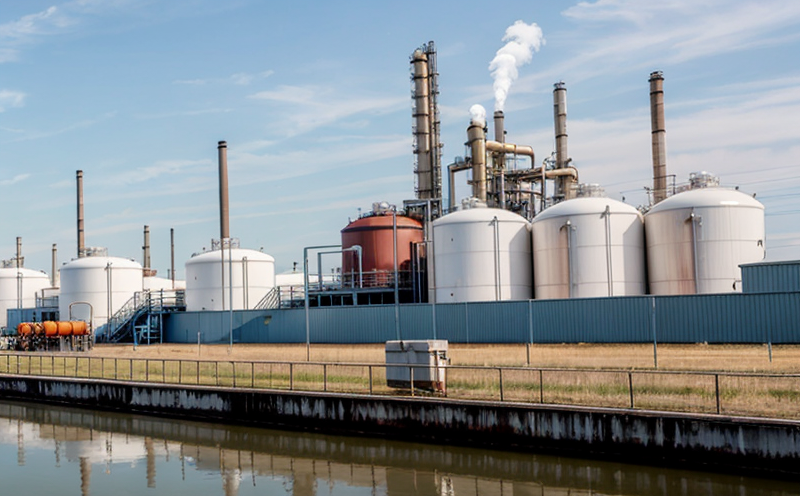BS EN 12457 Leachability Safety Testing in Solid Waste
The BS EN 12457 standard provides a method to determine leachability of solid waste by simulating the conditions that may be encountered during landfilling, incineration or other waste treatment processes. This testing is crucial for ensuring safety and compliance with international standards concerning hazardous substances in solid waste.
The process involves placing a sample of solid waste into an aqueous medium under controlled conditions to simulate leaching over time. The extractant solution is then analyzed for the presence and concentration of potentially harmful elements, such as heavy metals or organic compounds. Compliance with this standard ensures that waste materials do not pose risks to human health or the environment.
The scope of this service covers various types of solid wastes including industrial by-products, municipal waste, and hazardous substances. Our laboratory adheres strictly to international standards like BS EN 12457, ASTM D5338-09(2016), ISO 15266:2007, and others, ensuring accurate and reliable results.
Our skilled technicians perform rigorous sample preparation which includes cleaning the waste material to remove any non-leachable components. Properly prepared samples are then placed into test containers filled with leachate solution according to predefined methods. The duration of leaching can vary depending on the type of waste, ranging from a few days up to several weeks.
After extraction, our sophisticated analytical equipment measures the concentration levels of specific elements present in the leachate. Results are meticulously documented and reported back to clients along with recommendations for safe handling or disposal practices if necessary. Proper interpretation of these results helps stakeholders make informed decisions about waste management strategies.
This service is particularly important for companies involved in industrial processes where by-products could end up as part of municipal landfills or special waste facilities. By complying with this standard, businesses can ensure they meet legal requirements and avoid potential fines or reputational damage from environmental incidents related to improper waste disposal practices.
Our team of experts uses state-of-the-art technology to conduct these tests ensuring precision and accuracy in every step of the process. We pride ourselves on delivering reliable data that supports decision-making processes for our clients involved in various sectors such as manufacturing, construction, energy production etc., where managing hazardous materials responsibly is paramount.
In summary, BS EN 12457 leachability testing plays a vital role in safeguarding public health and environmental integrity by providing essential information regarding the potential hazards associated with solid waste. Our laboratory offers this service using rigorous procedures and cutting-edge technology to ensure accurate results that support responsible waste management practices.
Benefits
Avoid potential legal issues by ensuring compliance with relevant regulations.
Promote responsible waste management practices which enhance corporate reputation.
Ensure safe handling and disposal of hazardous materials reducing environmental risks.
Support informed decision-making processes related to waste treatment options.
Earn trust from stakeholders by demonstrating commitment to sustainability initiatives.
Quality and Reliability Assurance
We maintain strict quality control measures throughout the testing process. This includes regular calibration of all instruments, adherence to standardized protocols, and ongoing staff training on best practices for sample preparation and analysis. Our commitment to excellence ensures that our clients receive accurate, reproducible results every time.
Our proficiency in this field is recognized through numerous certifications from respected bodies worldwide. These include ISO/IEC 17025 accreditation which signifies our laboratory meets international standards for technical competence, impartiality, and quality management systems.
Environmental and Sustainability Contributions
By offering reliable leachability testing services, we contribute significantly to reducing environmental impact associated with improper disposal of hazardous waste. Our efforts help prevent contamination of soil, water bodies, and air which ultimately protects ecosystems and public health.
The insights gained from our tests inform sustainable practices that can be implemented across industries ranging from manufacturing to energy production. Through collaboration with clients on innovative solutions for managing hazardous materials responsibly, we play an active role in promoting a greener future.





